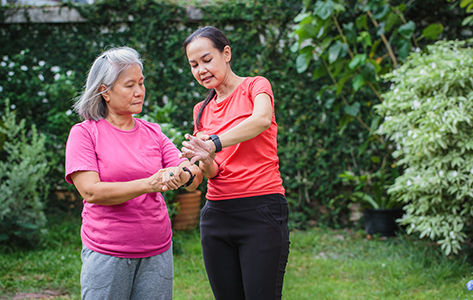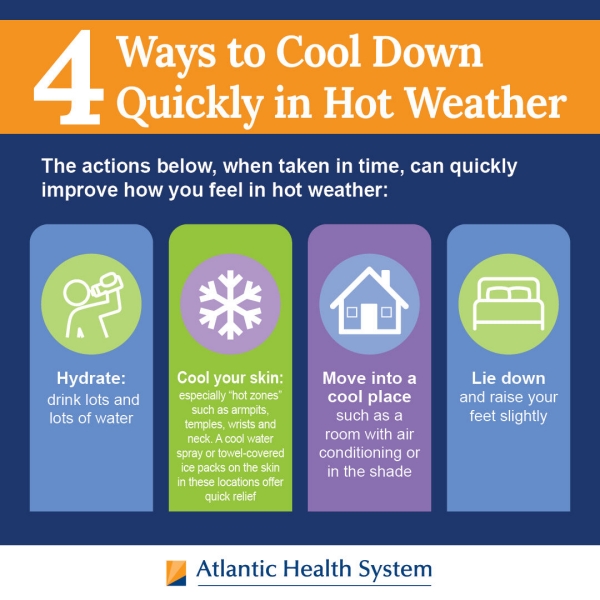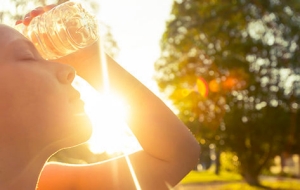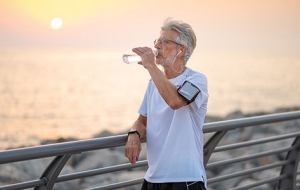Even a healthy heart can be put under stress when temperatures climb

People with chronic heart disease are particularly vulnerable to heat-related conditions.
Those over the age of 50, people who are overweight and those with lung disease are also at risk.
Michael Weinrauch, MD cautions that some medications that people take for heart conditions make it difficult for your body to respond to heat, such as:
- diuretics, which help rid your body of excess sodium and water
- beta blockers, which help control blood pressure
Health conditions that lower levels of oxygen in the blood or produce poor circulation also hinder the body’s ability to cool itself.
“The best way to understand how the heat of summer may impact your heart condition is to talk to your doctor who knows the details of your disease. Everyone is different, but there are some basic steps to follow.”
Dr. Weinrauch advises people with heart conditions to reduce their activity in the heat, to hydrate and to be aware of the warning signs of heat exhaustion and heat stroke >
4 Ways to Cool Down Quickly in Hot Weather
The steps below, when taken in time, can quickly improve how you feel in hot weather:
- Move into a cool place such as a room with air conditioning or in the shade
- Lie down and raise your feet slightly
- Hydrate: drink lots and lots of water
- Cool your skin - especially "hot zones" such as armpits, temples, wrists and neck. A cool water spray or ice packs on the skin in these locations offer quick relief
Be Proactive About Heart Health
Stay up to date with your annual visits to prevent and detect more serious issues and learn about risk factors for heart disease.
Related Articles
Your Healthy Summer Guide
Atlantic Health System is your healthy summer guide to a safe and fun season. From helpful tips to preventive and urgent care, we've got you covered for whatever summer brings.
Safety Tips for Exercise in the Summer Heat
Even seemingly gentle activities can lead to unexpected injuries. Learn helpful tips for preventing injury when exercising in the summer heat.
Avoid Heat Exhaustion this Summer
The summer heat and humidity sneak up on us. It is important to recognize the symptoms of heat exhaustion and heat stroke so you can protect yourself and those around you.
5 Cool Tips to Prevent Heat-Related Illness
Learn 5 tips to help you stay cool and safe during hot and sticky summers and avoid heat-related illness.
Protect Your Skin from Sun Damage this Season
Summertime activities bring us out in the sun. Whether it’s time spent at the beach, pool, park, or garden, it’s important to protect your skin from the glare of ultraviolet (UV) rays -- and lower your risk of potential skin damage.
Take a Heart Health Assessment
The first step to a healthier heart is understanding your risk for heart disease. Answer a few questions about your heart health and history to get your individual results.






